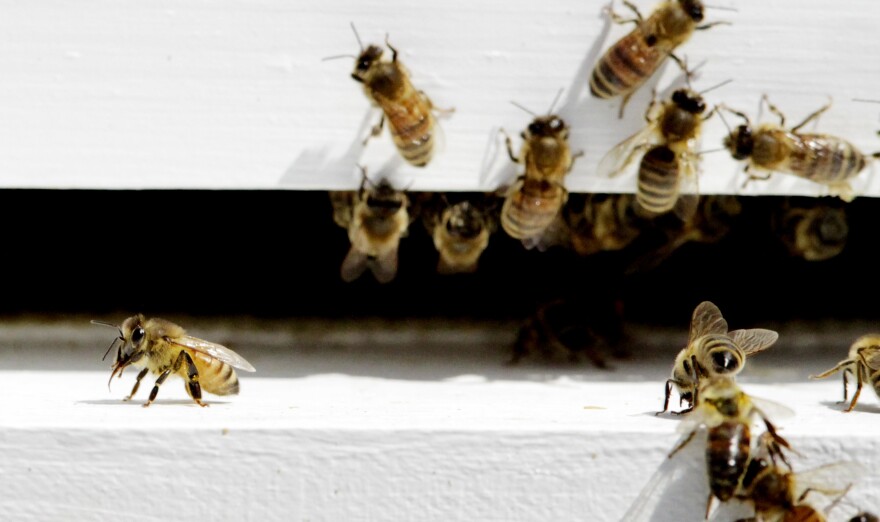Beekeepers in southern and coastal Maine are feeling the pinch of the ongoing drought, and many are bracing for a low honey harvest this year due to the dry conditions.
Some hives are showing signs of food stress, said state apiarist Jen Lund. And yellow jackets and hornets are robbing honey bee hives looking for their own food.
"When plants are drought-stressed, they actually don't produce as much nectar or pollen, and that leaves less resource for our bees to actually collect and then bring back and then store for their winter survival and also to feed their young," Lund said.
Judith Stanton, president of the Maine State Beekeepers Association, said she harvested 300 pounds of honey last summer to sell at a local store. She's harvested 100 pounds so far this year and doesn't anticipate collecting much more. The dry conditions are to blame, Stanton said.
"And we're also seeing plants blooming earlier. Right now normally the goldenrods would be blooming right around now, the middle of August, but we were seeing it in July.
Drier and warmer weather makes it more difficult to tend to the hives and keep the bees healthy, said Stanton, though beekeepers across Maine are talking about ways to adapt to a changing climate.
The conditions have become more common over the last four or five summers, Lund said.
Many beekeepers are feeding their hives sugar or protein supplements to keep them healthy. The practice is common, Lund said, but it can get expensive.
"This definitely does have an impact on our beekeepers," she said. "If they're having to spend a lot of money on supplemental feeds, the sugar budget, it goes up. That's going to be hard."




